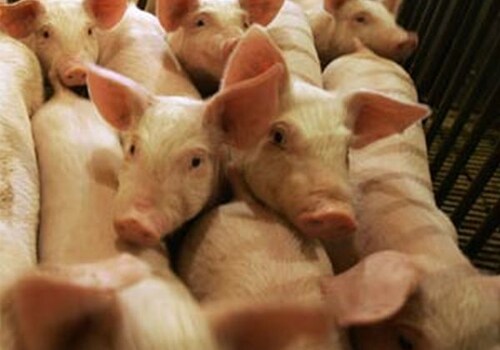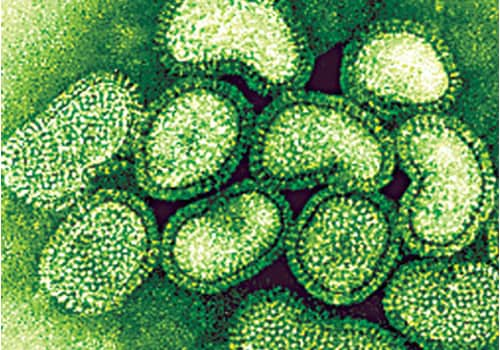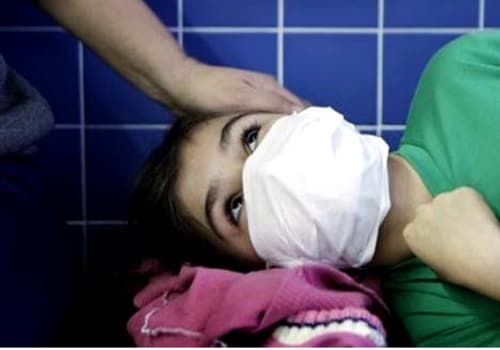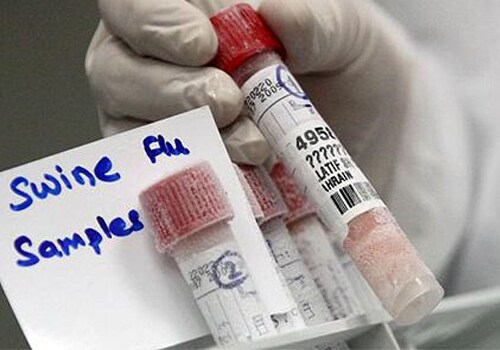-

What is swine flu?
Swine influenza, or ‘swine flu’, is a highly contagious acute respiratory disease of pigs, caused by one of several swine influenza A viruses that cause regular outbreaks in pigs. Morbidity tends to be high and mortality low (1-4%). The virus is spread among pigs by aerosols, direct and indirect contact, and asymptomatic carrier pigs. Outbreaks in pigs occur year round, with an increased incidence in autumn and winter in temperate zones. Many countries routinely vaccinate swine populations against swine influenza. Swine influenza viruses are most commonly of the H1N1 subtype, but other subtypes are also circulating in pigs (e.g., H1N2, H3N1, H3N2). Pigs can also be infected with avian influenza viruses and human seasonal influenza viruses as well as swine influenza viruses.
The H3N2 swine virus was thought to have been originally introduced into pigs by humans. Sometimes pigs can be infected with more than one type of virus at a time, which can allow the genes from these viruses to mix. Pigs are therefore also called as “mixing vessels”, resulting in an influenza virus containing genes from a number of sources, called a ‘reassortant’ virus. Although swine influenza viruses are normally species specific and only infect pigs, they do sometimes cross the species barrier to cause disease in humans.
So far, the recent outbreak due to the new strain of influenza virus A (H1N1) has had cases reported from North America, Mexico, Spain and UK. Suspect cases have been reported from New Zealand and France and these are being investigated. -

How does it spread?
It spreads in the same way as seasonal influenza – through direct contact (being within one metre of an infected person) or indirect contact (touching a contaminated surface). People usually get swine influenza from infected pigs, however, some human cases lack contact history with pigs or environments where pigs have been located. Human-to-human transmission has occurred in some instances but was limited to close contacts and closed groups of people.
-

What are the clinical symptoms?
Generally clinical symptoms are similar to seasonal influenza but reported clinical presentation ranges broadly from asymptomatic infection to severe pneumonia resulting in death. Patients experience high fever, cough, and sore throat, symptoms similar to typical influenza, with some patients experiencing diarrhoea and vomiting. The cases can rapidly progress to severe and unusual pneumonia.
-

What are the implications for human health?
People do not normally get swine flu, but outbreaks and sporadic human infections have been reported. Swine flu viruses have been reported to spread from person-to-person, but in the past, this transmission was limited and not sustained beyond three people.
Since typical clinical presentation of swine influenza infection in humans resembles seasonal influenza and other acute upper respiratory tract infections, most of the cases have been detected by chance through seasonal influenza surveillance. Mild or asymptomatic cases may have escaped from recognition; therefore the true extent of this disease among humans is unknown. -

Is it safe to eat pork meat and pork products?
Yes. Swine influenza has not been shown to be transmitted to people through eating properly handled and prepared pork (pig meat) or other products derived from pigs. The swine influenza virus is killed by cooking at 160°F/70°C, corresponding to the general guidance for the preparation of pork and other meat.
-

What is the prevention and treatment?
There are antiviral medicines one can take to prevent or treat swine flu [Pics]. There is no vaccine available right now to protect against swine flu. The spread of the viruses that cause respiratory illnesses like influenza can be prevented by:
- Covering your nose and mouth with a tissue when you cough or sneeze. Throw the tissue in the trash after you use it.
- Washing your hands often with soap and water, especially after you cough or sneeze. You can also use alcohol-based hand cleaners.
- Avoiding touching your eyes, nose or mouth. Germs spread this way.
- Trying to avoid close contact with sick people.
- Staying home from work or school if you are sick.
- Covering your nose and mouth with a tissue when you cough or sneeze. Throw the tissue in the trash after you use it.
-

What is the risk of pandemic risk?
It is likely that most of the people, especially those who do not have regular contact with pigs, do not have immunity to swine influenza viruses that can prevent the virus infection. If a swine virus establishes efficient human-to human transmission, it can cause an influenza pandemic. The impact of a pandemic caused by such a virus is difficult to predict: it depends on virulence of the virus, existing immunity among people, cross protection by antibodies acquired from seasonal influenza infection and host factors.
-

Is there a vaccine for protecting humans?
There are no vaccines that contain the current swine influenza virus causing illness in humans. It is not known whether current human seasonal influenza vaccines can provide any protection. Influenza viruses change very quickly. It is important to develop a vaccine against the currently circulating virus strain for it to provide maximum protection to the vaccinated people.


















